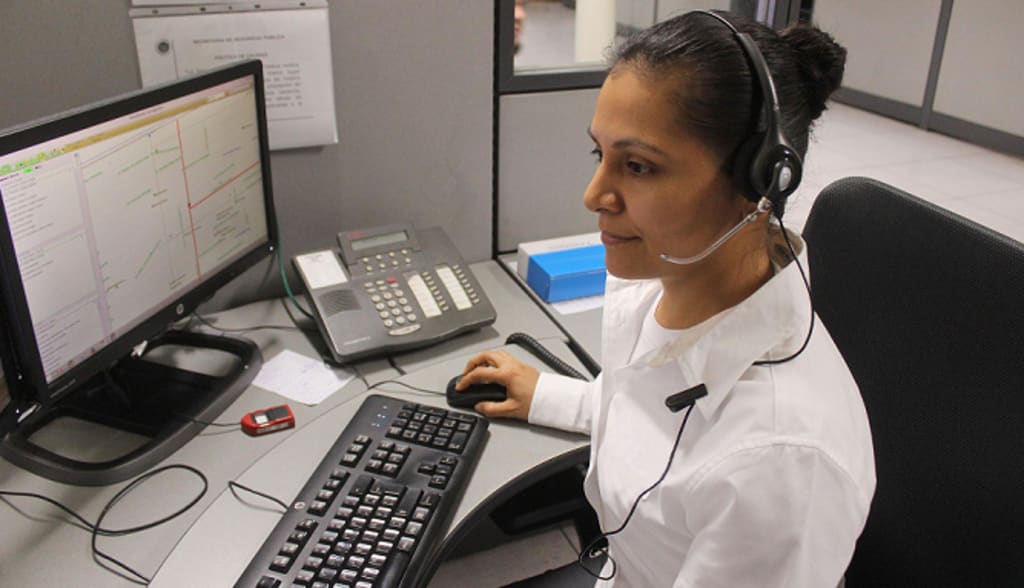The Duties and Responsibilities of a Qualified Medical Administrative Assistant
Medical administrative assistants play a crucial role in the healthcare industry. They provide vital support to medical professionals and ensure the smooth operation of medical facilities. If you're interested in pursuing a career as a qualified medical administrative assistant

Medical administrative assistants play a crucial role in the healthcare industry. They provide vital support to medical professionals and ensure the smooth operation of medical facilities. If you're interested in pursuing a career as a qualified medical administrative assistant, it's important to understand the duties and responsibilities associated with this role. In this article, we will explore the various tasks performed by medical administrative assistants, their role in patient care, and the skills required to excel in this profession.
Introduction
Medical administrative assistants are integral members of healthcare teams, providing essential administrative and clerical support. They ensure that medical facilities run efficiently and contribute to the overall patient experience. From managing appointments to handling medical records, medical administrative assistants perform diverse tasks that contribute to the smooth functioning of healthcare practices.
The Importance of Medical Administrative Assistants
Medical administrative assistants are the backbone of any healthcare facility. They bridge the gap between medical professionals and patients, ensuring effective communication and streamlined operations. By taking care of administrative tasks, they allow medical practitioners to focus on providing quality care to patients. Their contributions are crucial in maintaining a well-organized and patient-centered healthcare environment.
Administrative Tasks
Scheduling and Appointment Management
One of the primary responsibilities of a medical administrative assistant is managing appointments. They schedule patient visits, coordinate with medical staff, and ensure that the schedule runs smoothly. They handle rescheduling, cancellations, and follow-ups, ensuring that patients receive the care they need in a timely manner.
Medical Records Management
Accurate and organized medical records are essential for providing quality healthcare. Medical administrative assistants handle medical records, ensuring they are properly maintained, updated, and stored securely. They may also assist in retrieving patient information when required and ensure compliance with privacy regulations.
Billing and Insurance Processing
Medical administrative assistants are responsible for processing billing and insurance claims. They verify insurance coverage, prepare invoices, and communicate with insurance companies to facilitate payment. Their attention to detail is vital in accurately documenting procedures and ensuring prompt reimbursement.
Data Entry and Documentation
In any healthcare setting, proper documentation is crucial. Medical administrative assistants enter patient information, medical histories, and test results into electronic health records (EHR) systems. They ensure the accuracy and completeness of records, making them readily available for healthcare professionals when needed.
Maintaining Confidentiality
Patient confidentiality is of utmost importance in healthcare. Medical administrative assistants adhere to strict confidentiality guidelines and handle patient information with the utmost care. They understand the importance of privacy laws and take necessary precautions to protect sensitive data.
Patient Interaction and Support
Greeting and Assisting Patients
As the first point of contact for patients, medical administrative assistants play a crucial role in creating a positive and welcoming environment. They greet patients, guide them through the registration process, and address any initial inquiries or concerns. Their friendly and empathetic approach helps patients feel comfortable and cared for.
Answering Inquiries
Medical administrative assistants provide information and answer patient inquiries related to appointments, procedures, and general healthcare inquiries. They ensure that patients have the necessary information and address any concerns to the best of their ability. Clear communication and active listening skills are vital in this aspect of their role.
Providing Information and Instructions
Medical administrative assistants educate patients about pre-appointment instructions, such as fasting requirements or medication restrictions. They provide accurate and concise information to ensure patients are well-prepared for their medical procedures or consultations. Additionally, they may assist in scheduling follow-up appointments or referrals as necessary.
Managing Patient Flow
Efficient patient flow is crucial in healthcare facilities. Medical administrative assistants monitor waiting areas, ensure timely patient check-ins, and coordinate with medical staff to minimize delays. They maintain an organized workflow to optimize patient experience and overall operational efficiency.
Ensuring Patient Comfort
Medical administrative assistants prioritize patient comfort and strive to create a positive experience. They may provide comfort measures, such as offering water or blankets, and address immediate patient needs or concerns. Their compassionate approach helps alleviate anxiety and contributes to a supportive healthcare environment.
Collaboration with Medical Staff
Communication and Coordination
Effective communication is essential for medical administrative assistants when collaborating with medical staff. They relay messages between healthcare providers, manage inquiries, and ensure accurate and timely information exchange. Their ability to multitask and prioritize is crucial in maintaining effective communication channels.
Assisting with Medical Procedures
In some cases, medical administrative assistants may assist with medical procedures under the supervision of healthcare professionals. They may prepare examination rooms, sterilize equipment, and provide support during procedures. Their presence and assistance contribute to the efficiency and seamless execution of medical treatments.
Supply and Inventory Management
Medical administrative assistants may be responsible for managing supplies and inventory within the healthcare facility. They ensure the availability of necessary medical and office supplies, monitor stock levels, and coordinate orders as needed. Their attention to detail helps maintain optimal inventory levels and contributes to cost-effective operations.
Technical and Software Proficiency
Electronic Health Records (EHR) Systems
Proficiency in electronic health records (EHR) systems is essential for medical administrative assistants. They should be comfortable navigating EHR platforms, entering data accurately, and retrieving information efficiently. Familiarity with EHR functionalities enables them to contribute effectively to the digital documentation process.
Medical Billing Software
Medical billing software is used to process invoices, insurance claims, and financial transactions. A qualified medical administrative assistant should possess the necessary skills to utilize such software effectively. They ensure accurate billing and facilitate timely reimbursement, contributing to the financial stability of healthcare facilities.
Office Productivity Tools
Proficiency in office productivity tools, such as word processing software, spreadsheets, and email, is crucial for medical administrative assistants. They use these tools to create reports, compose emails, and manage administrative tasks efficiently. Strong computer skills enable them to perform their duties with accuracy and productivity.
Qualities of a Successful Medical Administrative Assistant
To excel as a medical administrative assistant, certain qualities and attributes are valuable in this role:
Attention to Detail
The ability to pay close attention to detail is essential in the healthcare industry. Medical administrative assistants must accurately record and document information, ensuring that no crucial details are overlooked. Attention to detail helps maintain the integrity of medical records and ensures that administrative tasks are performed accurately.
Strong Organizational Skills
Effective organizational skills are crucial for managing multiple tasks and responsibilities. Medical administrative assistants must maintain orderly schedules, manage appointments, and prioritize tasks effectively. Being organized allows them to handle administrative duties efficiently and contribute to a well-structured healthcare environment.
Excellent Communication
Clear and concise communication is vital for effective interaction with patients, healthcare professionals, and colleagues. Medical administrative assistants should possess strong verbal and written communication skills to convey information accurately and address inquiries and concerns. Their ability to communicate effectively contributes to a positive patient experience and a cohesive healthcare team.
Empathy and Compassion
Medical administrative assistants often interact with patients who may be experiencing physical or emotional distress. Demonstrating empathy and compassion helps create a supportive and comforting environment. By showing understanding and kindness, they contribute to the overall well-being of patients and enhance their healthcare journey.
Problem-Solving Abilities
In the fast-paced healthcare environment, unforeseen challenges and situations may arise. Medical administrative assistants need to possess strong problem-solving skills to address issues promptly and find effective solutions. They should be resourceful and adaptable, ready to handle unexpected circumstances and contribute to the smooth functioning of the healthcare facility.
Education and Training
Becoming a qualified medical administrative assistant typically requires a combination of education and training. While specific requirements may vary, the following aspects are generally included:
Medical Terminology and Office Procedures
Understanding medical terminology is essential for effective communication within a healthcare setting. Medical administrative assistants receive training in medical terminology, enabling them to comprehend and accurately document patient information. Additionally, they learn office procedures specific to the healthcare industry, ensuring they are well-versed in the administrative aspects of their role.
Administrative Skills Development
Medical administrative assistants undergo training to develop their administrative skills. This may include learning about appointment scheduling, record-keeping, billing procedures, and software proficiency. Training programs equip them with the necessary knowledge and abilities to perform their duties efficiently.
Certifications and Continuing Education
While certification is not always mandatory, obtaining a certification in medical administrative assisting can enhance job prospects and demonstrate proficiency in the field. Organizations such as the National Healthcareer Association (NHA) offer certifications, such as the Certified Medical Administrative Assistant (CMAA) credential. Continuing education opportunities, such as workshops and seminars, also allow medical administrative assistants to stay updated with industry advancements and expand their knowledge.
Career Outlook and Opportunities
The demand for qualified medical administrative assistants is expected to grow in the coming years. As healthcare facilities expand and the need for administrative support increases, job opportunities in this field are promising. Medical administrative assistants can find employment in various settings, including hospitals, clinics, physician offices, and other healthcare facilities.
With experience and additional training, medical administrative assistants can advance their careers. They may take on supervisory roles, such as office managers or practice administrators. Specializing in specific areas, such as medical coding or medical billing, can also open up new opportunities for career growth.
Conclusion
Qualified medical administrative assistants play a vital role in the healthcare industry, ensuring the smooth functioning of medical facilities and providing essential support to patients and healthcare professionals. From administrative tasks to patient interaction, their contributions are invaluable in maintaining a patient-centered and well-organized healthcare environment. By possessing the necessary skills, qualities, and education, individuals can pursue a rewarding career as a medical administrative assistant.
FAQs
What qualifications are required to become a medical administrative assistant?
While specific qualifications may vary, most employers seek candidates with a high school diploma or equivalent. Completing a medical administrative assisting program or obtaining a certification can enhance job prospects.
What are the typical work hours for a medical administrative assistant?
Medical administrative assistants typically work full-time hours, which may include evenings, weekends, or holidays, depending on the healthcare facility's operating hours.
How important is attention to detail in this role?
Attention to detail is crucial for medical administrative assistants as they handle sensitive patient information, manage appointments, and process billing and insurance claims. Accurate documentation and meticulousness are vital for maintaining the integrity of healthcare records.
Are there any advancement opportunities in this field?
Yes, there are opportunities for advancement in the field of medical administrative assisting. With experience and additional training, individuals can progress to supervisory roles or specialize in specific areas, such as medical coding or billing.
What are some challenges faced by medical administrative assistants?
Medical administrative assistants may face challenges such as managing high patient volumes, handling demanding or distressed patients, and navigating complex insurance procedures. Adaptability, problem-solving skills, and effective communication are key in overcoming these challenges and ensuring smooth operations within the healthcare setting.





Comments
There are no comments for this story
Be the first to respond and start the conversation.